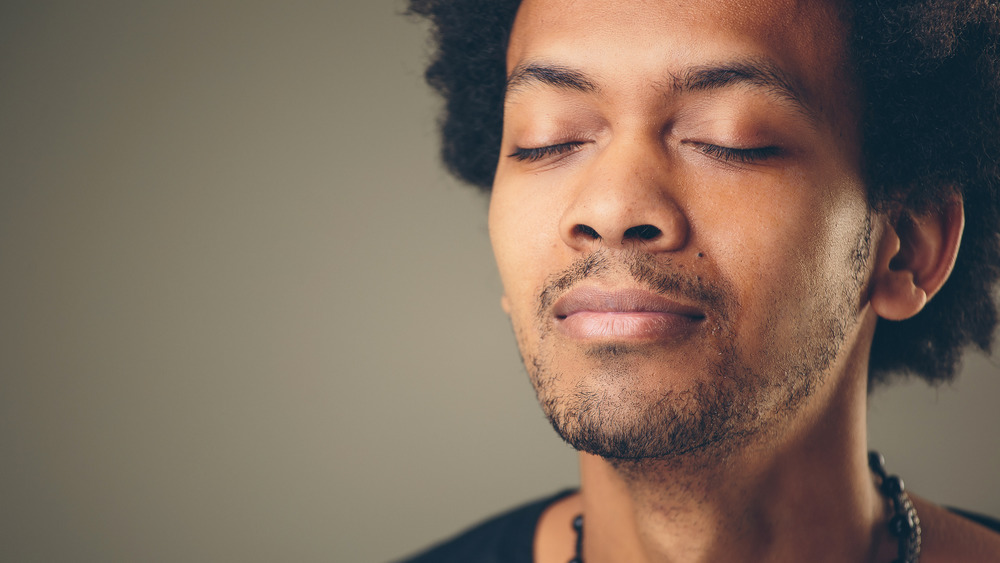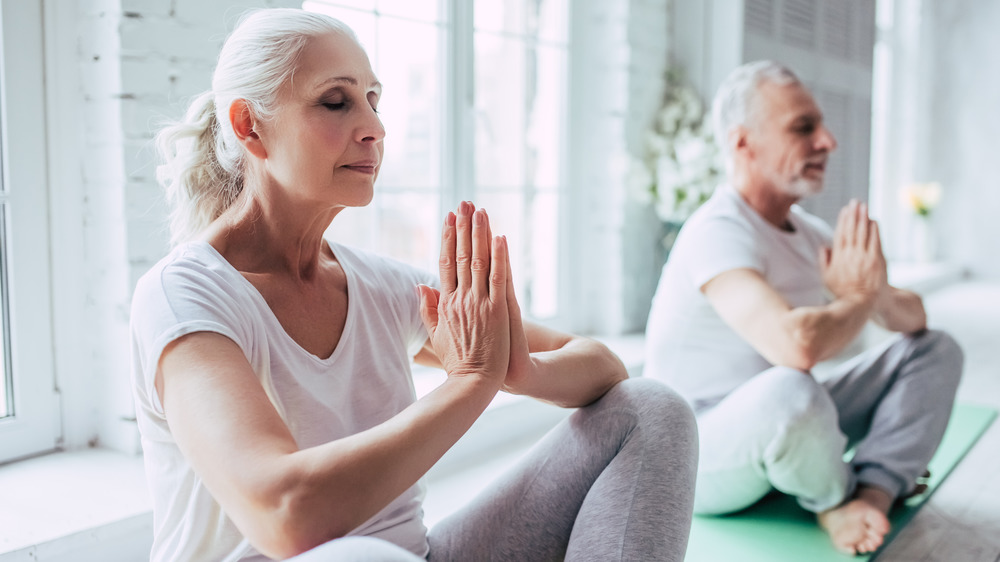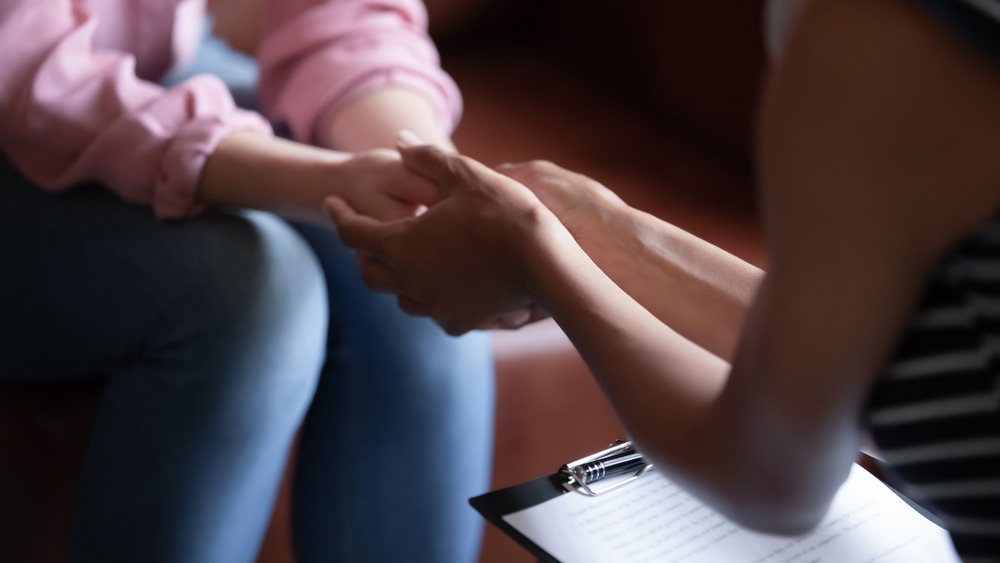Therapist-Approved Ways To Cope With Anxiety
Anxiety is a word that's often tossed around lightly and used as if it's just another synonym for stress — something mildly bothersome, but relatable, since hey, don't we all feel that way from time to time? True anxiety, however, goes way beyond that. Anxiety disorder is a serious, debilitating mental health issue, one that the Anxiety and Depression Association of America says affects some 40 million people in the U.S. every year. That's 18.1 percent of the population, or nearly 1 out of 5 of us. (These statistics are only tracking adults aged 18 and up and don't take into account child and teen anxiety.) The CDC reports even higher numbers during recent months, with up to 40 percent of the population dealing with mental health struggles and/or substance abuse issues.
While anxiety may stem from any number of causes — genetics, brain chemistry, traumatic life events — it is still considered to be very responsive to treatment, although only 36.9 percent of those suffering from anxiety disorder ever seek professional help. Dr. Meghan Marcum, chief psychologist at mental health treatment center A Mission for Michael, offers some hope even for those who don't want to (or cannot) access therapy. She says that "just a few changes to your daily routine could make a significant difference."
Stay in the moment
According to Marcum, "when we are anxious there is essentially too much worry going on in our minds, usually about the future." She suggests that the first step towards managing anxiety lies in paying close attention to where our thoughts are going. She says that it is just a waste of time and energy to occupy your mind with brooding or fretting over anything you can't control, and there's a lot you can't control — the weather, the state of the nation, your team's chances of winning the Super Bowl, an unexpected worldwide pandemic. Marcum advises instead: "Refocus your thoughts on the present moment and attend to what you DO have control over throughout the day."
Take deep breaths
Marcum says that anxiety affects not only our minds but also our bodies. Some of the ways in which it can manifest itself, she says, are as muscle tension, an upset stomach, a feeling of being "on edge," a rapid heart rate, or shortness of breath. In order to ramp down the anxiety instead of having the physical symptoms spiral you into feelings of panic, she says to be aware of what's going on in your body.
One quick trick she swears by for calming down is diaphragmatic breathing. All you need to do, says Marcum, is to "take a slow, deep breath in through your nose and slowly release it through your mouth." Repeat, focusing on each breath, until you start to feel less tense. Marcus says that this type of breathing "helps decrease heart rate and blood pressure,' and adds that it "can quickly help alleviate symptoms of anxiety."
Take time to relax
In order to prevent anxious feelings from building up, Marcum says it's important to take a proactive approach and build in time for relaxing activities throughout the week. She particularly advises trying to wean yourself off technology and media, at least for short intervals, since the world is already enough of a stressful place and being "plugged in" at all times doesn't really help.
Instead, Marcum suggests activities such as meditation, exercise, gardening, massage, or a hot bath. She says you should "set aside some time each day to relax and unwind... chose an activity that works for you and make sure you plan on 20 minutes a day."
Don't give up on finding help
Don't discount the idea of seeking professional help if self-management techniques aren't sufficient to alleviate your anxiety. As Marcum says, 'If anxiety symptoms are causing disruption to your work or relationships it's probably a good idea to seek professional help," and goes on to add that "you may be surprised at how quickly you can make progress in managing anxiety with a mental health professional." As to how you go about finding professional help, Marcum advises calling your insurance carrier (or you could also try navigating their website) or maybe getting a referral from your primary care physician.
If you do not have adequate health insurance and funds are tight, that doesn't mean there's no help available. The Anxiety and Depression Association of America has a tool that will help you locate a therapist in your area and says that many mental health professionals will offer a sliding-scale fee based on your income if you don't have the insurance to cover the treatment you need. They also suggest seeking low-cost treatment from federally funded health centers or even from colleges and universities where graduate students may offer counseling services at a discounted rate in order to gain experience in the field. Should you be in need of anti-anxiety medication, check into the patient assistance programs offered by many major pharmaceutical companies. If you qualify, you may be able to receive your meds for cheap or even free.




